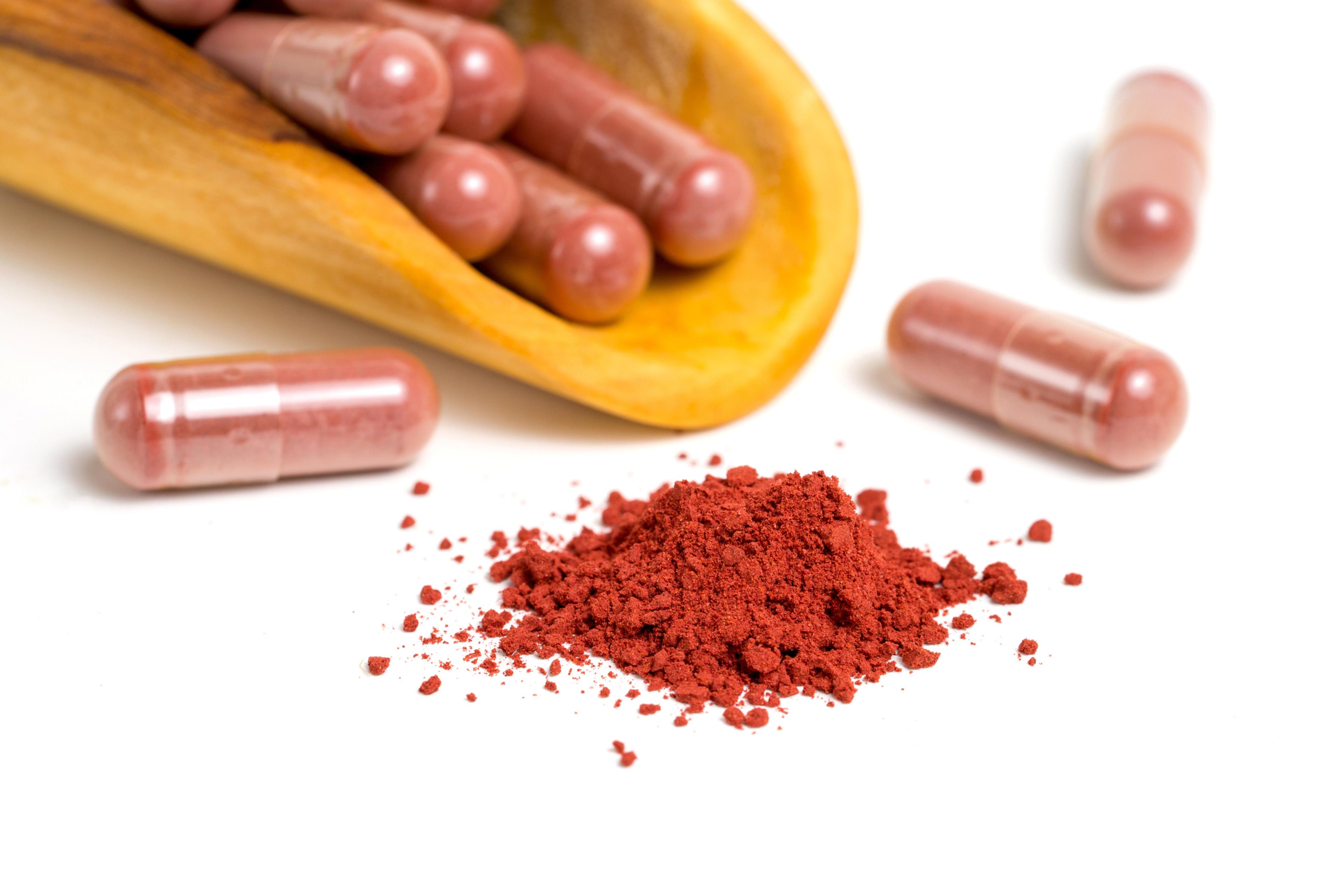What is Red Yeast Rice? Are There Health Benefits?

Lindsay Knake
| 3 min read

The supplement red yeast rice is known for its cholesterol-lowering properties.
What is it, and is this a safe substitute for medications? Let’s look at red yeast rice, high cholesterol and safe ways to manage and lower cholesterol.
What is red yeast rice?
Red yeast rice, an ancient Chinese medicine, is a product of a fungus called Monascus purpureus grown on rice. It’s available as a powdered dietary supplement.
This supplement can have high levels of a substance called monacolin K, which is structurally identical to the cholesterol drug lovastatin, according to the National Institutes of Health (NIH). This prescription medication is a statin drug that slows cholesterol production in the body.
Cholesterol is a waxy substance naturally produced in the liver and is found in foods from animal products. The body uses cholesterol to make Vitamin D, hormones and tissue. There are two main types of cholesterol:
- LDL (low-density lipoprotein) cholesterol, also called “bad” cholesterol. High levels of LDL can increase your risk for heart disease and stroke.
- HDL (high-density lipoprotein) cholesterol, known as “good” cholesterol. High levels can decrease your risk of heart disease and stroke.
As about 25 million Americans have high LDL cholesterol, according to the U.S. Centers for Disease Control and Prevention, lowering and managing cholesterol is important to prevent chronic conditions and improve long-term health. Heart disease is the leading cause of death in the United States.
Some people have turned to supplements like red yeast rice because of its cholesterol-lowering properties, according to the Mayo Clinic.
Red yeast rice products with high amounts of monacolin K may work to lower cholesterol levels and blood pressure, reducing the risk of heart disease, according to the NIH. However, you may want to pause before grabbing a bottle.
Risks of red yeast rice supplements
The U.S. Food and Drug Administration (FDA) does not regulate dietary supplements, and a package of red yeast rice may contain very high or very low amounts of monacolin K regardless of what the label says. There is no way to know how much monacolin K is in a supplement of red yeast rice, so you can’t be sure you’d get the amount you need to manage cholesterol, according to the NIH.
Products with high amounts of monacolin K can cause liver, kidney and muscle damage in addition to nausea and diarrhea. Like statin drugs, this substance can interact with other medications. There are no studies to indicate whether this supplement is safe during pregnancy or breastfeeding.
Additionally, red yeast rice supplements may contain a contaminant called citrinin, which can cause kidney damage.
How to manage or lower cholesterol
Managing cholesterol levels will start with your primary care physician (PCP). Get annual physicals and recommended screenings to check cholesterol levels. Talk to your PCP if you have high cholesterol, a family history of high cholesterol or heart disease and before you take any supplements.
Medications such as statins are common, FDA-approved drugs for high cholesterol. There are also lifestyle changes you can make to manage cholesterol levels, including:
- Eat a diet rich in fiber and healthy fatty acids
- Limiting saturated fats in your diet
- Limit or avoid alcohol
- Quit smoking
- Exercise 30 minutes a day, five days a week
- Manage stress
Image: Getty Images
Related:
- Does Plant Protein Lower Heart Disease Risk?
- Low Sodium Condiments
- How to Understand Misleading Food Labels





